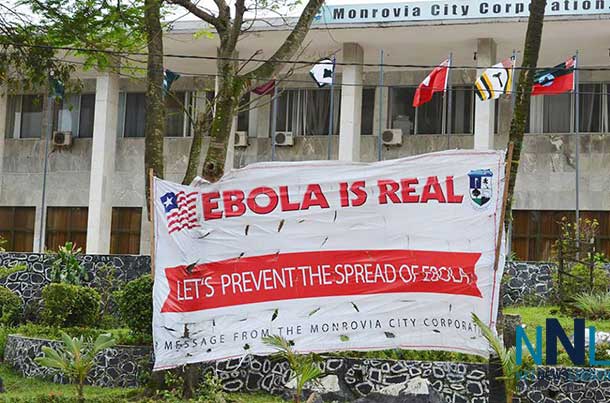
NEW YORK – HEALTH – As the World Health Organization (WHO) ramps up its response to the unprecedented outbreak of the Ebola virus disease in West Africa, the wider United Nations, led by Secretary-General Ban Ki-moon, has launched a system-wide coordination initiative to assist Guinea, Liberia, Nigeria, and Sierra Leone in their efforts to halt the spread of the virus, which has left more than 1,000 people dead and is now affecting more than 1 million people throughout the region.
The Organization’s efforts got a major boost last week when Mr. Ban appointed Dr. David Nabarro, British physician and public health expert, as Senior UN System Coordinator for Ebola, in support of the work done by WHO Director-General Dr. Margaret Chan and her team to counter the outbreak of the virus, first identified this past March in rural Guinea and which, the agency has subsequently designated a “public health emergency of international concern.”
Speaking to the UN News Centre before heading out on his first mission to West Africa, Dr. Nabarro, tasked with ensuring that the UN system makes an effective, coordinated contribution to the global effort to control the outbreak, touched on some critical issues – strengthening the health sectors in the affected countries, ensuring protection for frontline health workers, and tackling fear and stigma associated with Ebola – that the region’s Governments, with the support of the United Nations family, will be grappling with in the coming days and weeks.
UN News Centre: Could you tell us a bit about the current situation in the (mainly West African) countries where people are affected? What is WHO doing to protect health workers in the region?
David Nabarro: Ebola virus disease has been spreading in four countries in West Africa during the last few months. In three of those countries, it really is a severe outbreak. Perhaps the first country to be affected was Guinea, and it’s had some waves of infection. But now we’re looking particularly at two other countries – Liberia and Sierra Leone – where the infection rates seem to be picking up. We’re seeing new cases reported every day in different parts, particularly of Liberia and Sierra Leone. The situation in Guinea is slightly more stable. And as we look forward into the future, we are concerned that the outbreak will continue to spread and perhaps will not be got quickly under control.
UN News Centre: And is WHO taking specific measures to protect health workers in the region?
David Nabarro: So this outbreak of the disease is particularly of concern to the health sector. And when I talk about the health sector, I mean the ministries of health, also the partner organizations who work with the ministries of health in order to help people maintain good health and to be free of disease, and international organizations like the World Health Organization, which has been particularly involved in this effort. And what WHO and others have been doing is encouraging two things to happen. Firstly, is that the health sector is able to help diagnose people who are thought to have Ebola virus disease, and then to enable them to have the proper treatment that they need.
In the case of all the affected countries, it is the national health services that are taking the lead and they are supported by partner organizations and then also by the World Health Organization, which is taking particular action to try to enable health care staff to provide proper treatment and themselves to remain free of disease. It is a challenge because the Ebola virus is infectious. But if proper precautions are adopted, then infection does not take place. What we know is that the virus moves from one person to another through body fluids. That means through, for example, vomit or faeces or perhaps even saliva. If you can protect yourself from contact with the body fluids of an infected person, you will not get infected.

So the health sectors, with the various partner organizations and WHO, are advising on the right precautions to take in order to prevent infection. And that is the key to trying to find ways to help get the disease under control, to provide proper treatment and then at the same time avoid health workers and others from getting infected.
UN News Centre: What are the chances of the virus spreading to countries outside the region and what is the UN doing to prevent this from happening?
David Nabarro: As news about the Ebola virus infection has spread, the countries of the world have asked the World Health Organization to come up with guidance on what should be done about it. Firstly, WHO convened a meeting of its Emergency Committee, and that Committee concluded that the Ebola virus outbreak in West Africa is a public health emergency of global importance. That means that there is a selection of actions that are taken to control the outbreak and also to help the people affected by the outbreak in the affected countries, and also to try to prevent the spread of the disease to other countries in the region. That does mean trying to find people who are infected, putting some kind of restrictions on their movements so they cannot travel to infect other people, and also containing them in locations where they can get proper treatment and support but, at the same time, stop them from moving to places and transmitting the virus to others. That’s the basis of the efforts to prevent spread.
Now of course that does not mean that you stop all people from traveling from the affected countries. It also does not mean that you stop all travel to the affected countries. It’s focusing on the people who themselves are likely to have the disease or to have been exposed to the disease. They’re the ones who we try to prevent from moving and also who become part of the area of containment when the outbreak is present.






